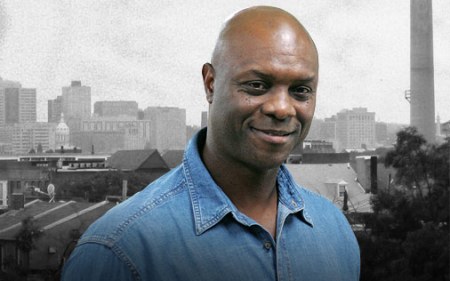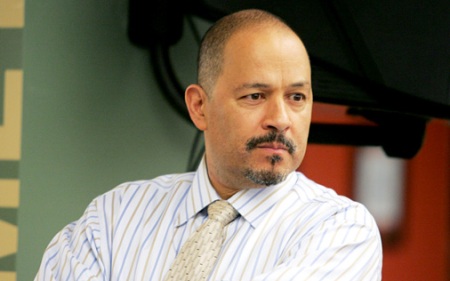HBO’s “The Wire” has been praised by such politically divergent groups as Libertarians, Socialists and even mainstream Democratic candidate Barack Obama.
In a Jan. 18 post on SocialstWorker.org, Leela Yellesetty recommends The Wire to her readers, calling the show a “brilliant drama” that “movingly makes the case for the people of Baltimore.”
In the Oct. 2004 issue of Reason magazine, the publication for hard-core Libertarians, Jesse Walker compared the show to one of Shakespeare’s history plays that “looks without flinching at the bankruptcy of the drug war, the intersection between crime and politics and the day to day deprivations of inner-city poverty.”
In an interview Patrick Coolican that appeared in the Las Vegas Sun Jan. 14, Obama volunteered that his favorite character is stick-up artist Omar. “He’s not my favorite character, but he’s a fascinating character,” Obama said.
So how is it that people from free-market Libertarians to anti-capitalist Socialist to mainstream Democrats can disagree on so much, but all find common ground with The Wire?
For Libertarians, The Wire offers, perhaps, one of the most compelling arguments ever seen on television for the decriminalization of drugs. Libertarians favor ending prohibition on drugs and argue that “nearly one-half of all police resources are devoted to stopping drug trafficking instead of preventing violent crime.”
Though I don’t know if Simon is a Libertarian, his views on the drug war are well known. In a 2003 interview with Bret McCabe of the City Paper, Simon called Season 1 “a very dry, unimpassioned, but definitive argument against the drug war, and against everything that the drug war represents.
In Season 3, Howard “Bunny” Colvin is frustrated with the war on drugs and launches a decriminalization experiment in three zones in his district, areas that become known as Hampsterdam. Violent crime is reduced in the rest of his district so much that his bosses wonder if he’s cooking the stats. Libertarians must have been thrilled to see one of their major points about the drug war dramatized in a television show.

Howard “Bunny” Colvin, played by Robert Wisdom, created a Libertarian utopia in Season 3
Libertarians might see Season 4 as an endorsement of their argument to “break up the public education monopoly.” In the fictional Mildred Monroe Middle School, teachers are portrayed as mere functionaries whose sole purpose is to train students to get passing grades on standardized tests. Students Namond Brice, Michael Lee, Randy Wagstaff, Duquan “Dukie” Weems attend a dysfunctional and violent school where very little, if any, learning transpires. Libertarians argue that “poor families are trapped — forced to send their children to a public school system that fails to educate.”
At the other end of the political spectrum, Socialists can also find support for their anti-capitalist rhetoric in The Wire, especially in Season 2, which unfolds in the once-thriving ports of Baltimore. While plotline centers around an effort to solve the murders of Russian women found in a container, the theme of the season is how capitalism is indifferent to working people. Or as Simon said in the McCabe interview, “if there’s anything polemical about this second season, it’s an argument about what happened in this country when we stopped making shit and building shit, what happened to all the people who were doing that.”
Socialists might view Season 2 as an eloquent argument for the view “that exploitation and oppression are products of the capitalist system, a system in which a minority ruling class profits from the labor of the majority.”
While it’s easy to see how Socialists and Libertarians can both find their political philosophies reflected in “The Wire,” it’s more difficult to understand how the show’s subversive messages appeal to a mainstream Democrat like Obama. The candidate’s web site mentions nothing about the war on drugs and its impact on the country’s inner cities. Among his issues, crime isn’t even listed, nor does he mention how he would address the laundry list of problems that plague inner city America.
Watching The Wire is like reading one of the great novels. You can’t watch it, and not, at the very least, think about how it has changed your world view. It’s interesting that Omar is Obama’s favorite character, but I’m more curious to know how, if at all, The Wire has shaped Obama’s views on the war on drugs, the failure of public education, and the dispensability of the American worker.
